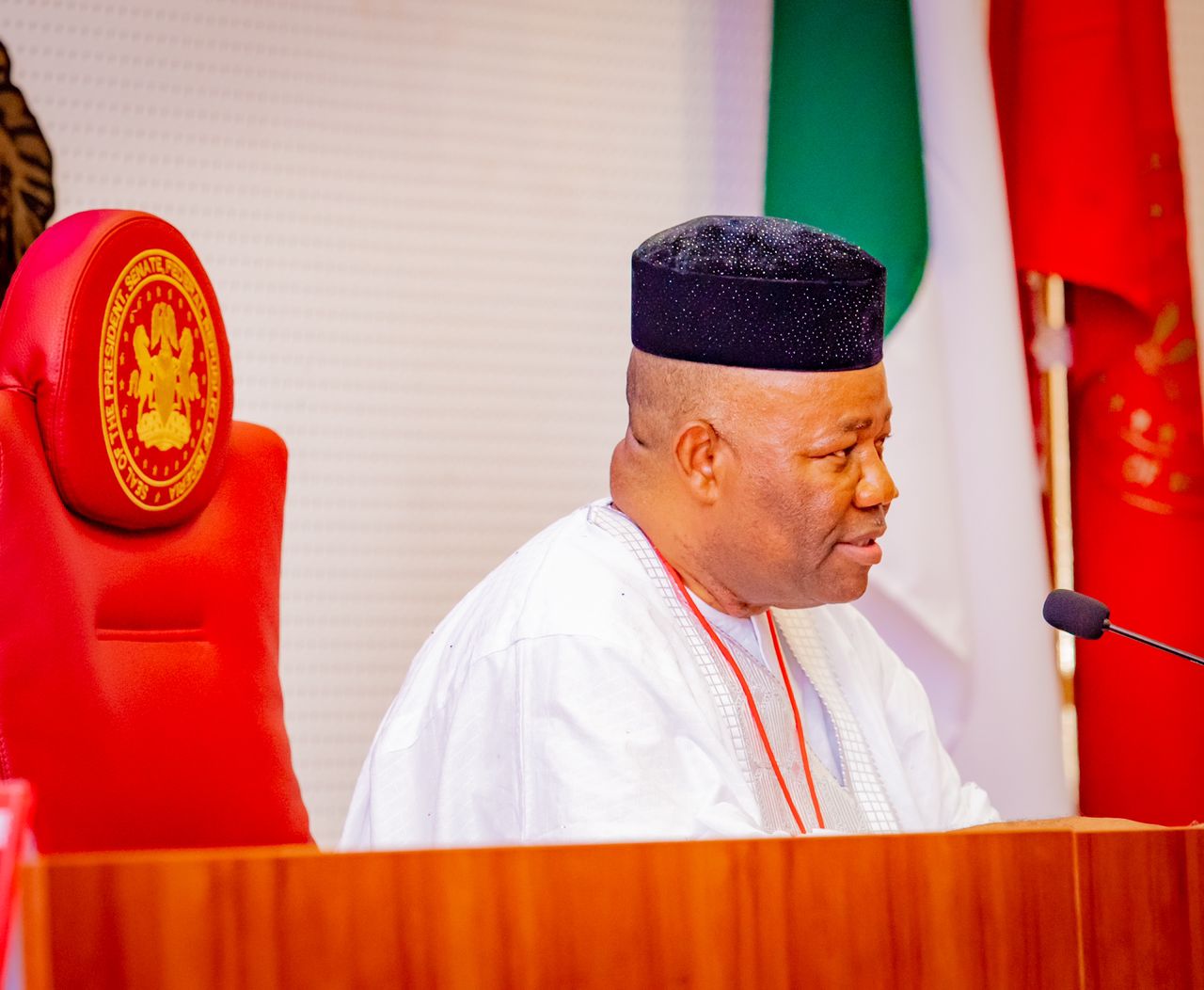
RECENT actions of the 10th National Assembly suggesting unquestioning subservience to the Executive Branch have ignited anxiety and dismay among democrats, civil society, and the independent media. Apart from frequent endorsements of President Bola Tinubu’s actions by legislators, the House of Representatives hurriedly passed his request for an amendment to the 2022 Supplementary Appropriation Act, while the Senate also rushed through requested changes to the N819.5 billion supplementary budget. Emerging from a nightmarish four years of virtual enslavement of the parliament to the Presidency, the prospects of more of the same amid monumentally poor governance and grave national challenges is scary. It should be avoided.
The 10th NASS should be conscious of its constitutional and historic roles: service to Nigerians and realisation of the aspirations of the citizens should be the cardinal priority of lawmakers; not elite solidarity.
Democracy is anchored on majority rule, expressed through regular elections and the supremacy of the rule of law.It is given effect by the carefully constructed system of checks and balances via the principle of the separation of powers. The Executive, Legislature and Judiciary are expected to be mutually independent, though working towards the same goal of national service.
A paper published by the Nnamdi Azikiwe University’s Journal of Philosophy, asserts, “For democracy and good governance to stand the test of time, the principle of separation of powers and checks and balances among the arms of the government must be respected and entrenched, particularly between the executive and legislature.”
A parliament that fails to take its oversight duty seriously is a liability, especially in a presidential system where the executive wields enormous powers. Nigerians endured such a quisling legislature in the Ninth NASS that under Ahmad Lawan as Senate President, and Femi Gbajabiamila as House Speaker, shamelessly became an appendage of the Presidency, approving all the latter’s actions and requests without the slightest modicum of parliamentary scrutiny.
Current Senate President, Godswill Akpabio, and House Speaker, Tajudeen Abbas, should avoid that repugnant path.
For clarity, the ideal is for the three arms of government to facilitate harmonious collaboration for the common good. However, democratic norms and the constitution place an onerous responsibility of oversight over executive actions on the NASS. This requires rigour, enlightened interrogation and scrutiny of government actions and policies to truly serve as guardians of the people’s interests. The Ninth NASS failed the test woefully and was complicit in the ruinous legacy of the Muhammadu Buhari administration.
Apart from refusing to subordinate the parliament to the Presidency, the 10th NASS should drop the culture of entitlement, greed, and corruption it inherited from its predecessor. While Nigerians groan in hardship and millions more slide into poverty following the stoppage of petrol subsidies and the naira devaluation, legislators have voted N70 billion to “ease the working conditions” of NASS members, and another N40 billion to purchase 465 SUVs. This is unconscionable and insensitive.
The leadership should rescue itself from such repulsive acts, make individual sacrifices, cut public recurrent spending and the perks of officials, reduce their fleets of expensive vehicles, and the army of aides and work to slash the federal civil service.
Without being necessarily combative, the NASS should nevertheless critically scrutinise every executive request, and spending bills, asserting due process, and diligently performing its oversight functions.
The emergence of Akpabio and Abbas as Senate President and Speaker respectively was facilitated by the overbearing influence of the President. This is bad for democracy as it places a burden on such officers to do the President’s bidding. A former lawmaker, Sergius Ogun,predicts that the 10th assembly “would be rubber stamp promax.” Many observers share this view. The leadership should prove them wrong by asserting its independence and reclaim its integrity.
Nigeria does not deserve another parliament like the Ninth NASS. It gave Buhari a free pass to accumulate debts, approved his stream of incompetent appointees and failed to exercise rigour over the budgets and other spending bills. It backed Buhari’s impunity, including approving the N22.7 trillion ‘Ways and Means’ advances the administration took from the Central Bank of Nigeria, far above the limit set by law. To seal their illegality, the NASS disregarded the 2007 Fiscal Responsibility Act and attempted to securitise the loan and amend the law. Nigeria is indebted by over N77 trillion because of the legislative docility of Lawan and Gbajabiamila. Akpabio and Abbas should be different.
They should steer the 10th NASS away from self-centred bills such as the attempt to legalise lifetime pensions and immunity for principal officers, the irrational establishment of multiple federal universities, polytechnics, colleges and agencies, the repressive social media bill, and the attempted enactment of grazing routes across the country.
Although the need for a good working relationship between the NASS and the Presidency is desirable, it should neither subjugate the powers of the parliament nor fuse the line, discarding critical engagement, entrenching elite comradeship, and abuse of power. The International Parliamentary Union emphasises that a parliament directly represents the interests of the citizens, drafts, debates, amends, rejects, and makes laws.
Only fragile democracies have weak parliaments. Countries with strong parliaments develop vibrant democratic institutions, reprimand abuse of power and improve the lives of the people through clear and well-articulated policies. The IPU adds, “Strong parliaments are the cornerstone of democracy and essential for development. They represent the people, pass laws, and hold governments to account.”
According to the 2022 Economist Intelligence Unit’s ‘Democracy Index’ and the ‘2022 Global State of Democracy Report,’ Nigeria is considered a “hybrid regime,” where autocracy prevails while democracy is subverted. The EIU considered the functions of government and political participation, while GSoD considered representation, fundamental rights, checks and balances, among others to reach its conclusions.
Importantly, the 10th NASS should therefore upgrade democratic practice in Nigeria by weighing the socioeconomic implications of proposed executive and sponsored bills and actions. Lawmakers must anchor their statutory independence on an unbending commitment to good governance and selfless service.











